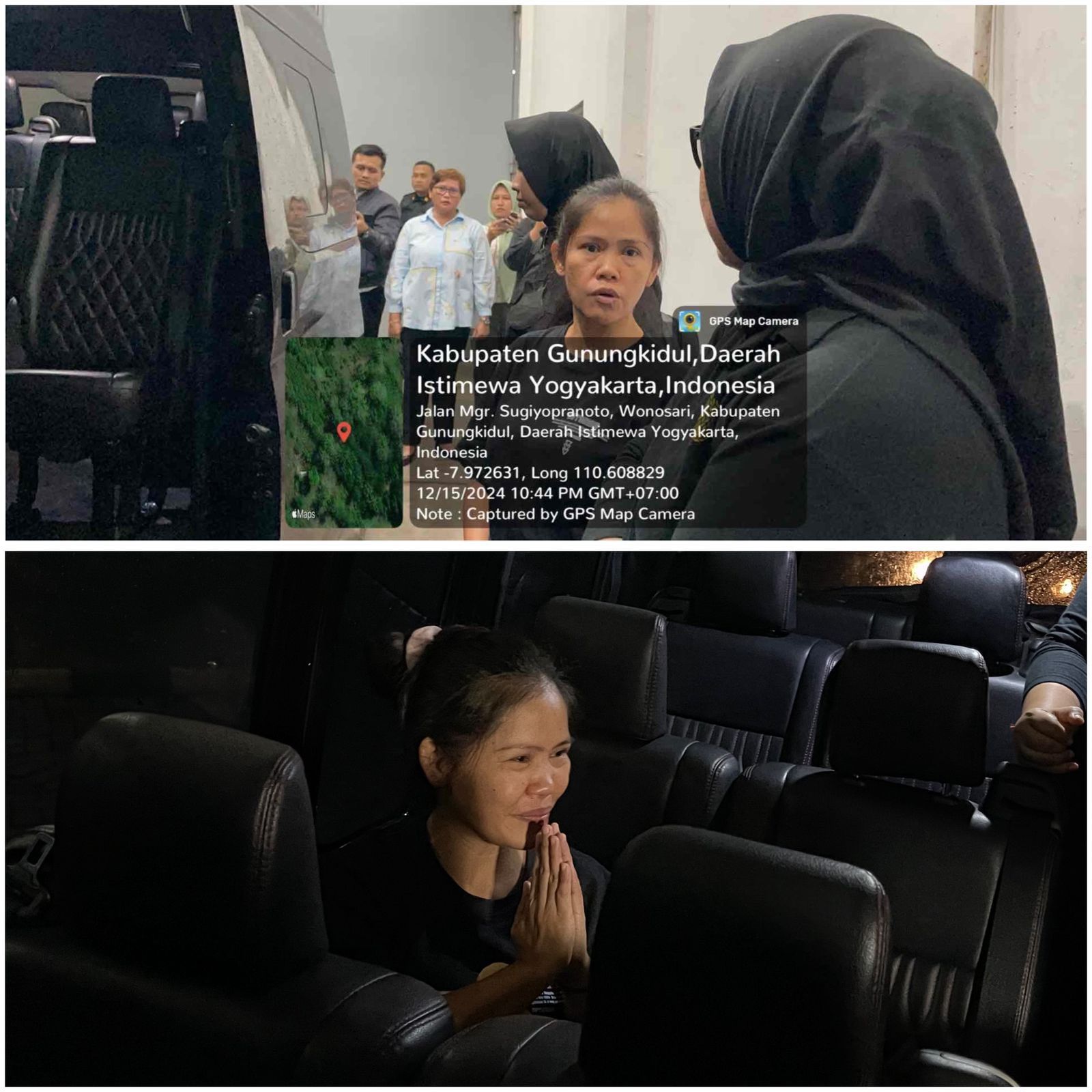14 years of uncertainty: A look back on Mary Jane Veloso's case
It has taken Mary Jane Veloso a grueling 14-year uncertainty, thinking if her death sentence be commuted or not. But her return to the Philippines on Wednesday, Dec. 18, will finally give her the assurance that she will remain alive.
Veloso, a Filipina domestic worker on death row in Indonesia, is returning to the country and will land in Manila from Jakarta around 6 a.m. following the signing of transfer of prison agreement between the Philippines and Indonesia.

The agreement has allowed the Philippines to take over the legal custody over Veloso. While Indonesia still has legal jurisdiction over her case, the Indonesian government said it is letting the Philippines decide on her case.
The Philippines has no death sentence. And that effectively means that Veloso, who was actually set to be executed by firing squad in April 2015, will enjoy the rest of her life.
In fact, she may also be completely freed if the Philippine government grants her clemency—an offer that will likely be granted considering that it has been Manila’s appeal to Jakarta since the issuance of her death sentence.
Timeline
In April 2010, Veloso came to Malaysia after being recruited in the Philippines to work as a domestic worker. Upon her arrival in the capital city of Kuala Lumpur, she was told that the job was no longer available, and was offered the same domestic work in Indonesia instead.
Veloso stayed at a Malaysian hotel as she waited for her flight bound for Indonesia. With few clothes on hand, Veloso was given by her recruiter, Maria Kristina Sergio, new clothes to wear and a suitcase.
In the same month, Veloso arrived in Indonesia. But authorities there were already alerted about the unusual object inside her luggage, which eventually led to the discovery of heroin inside her suitcase and her arrest.
In October 2010, Veloso was found guilty as charged as the court ruled that she could not prove her unawareness of the matter. She was then sentenced to death.
But due to then former Indonesian president Susilo Bambang Yudhoyono's moratorium on the death penalty, her execution was delayed. It was only after the election of succeeding president Joko Widodo when the capital punishment was reinstated.
In April 2015, Veloso wrote a letter addressed to former president Benigno Aquino III to spare her life. She also wrote a letter to her recruiters, asking them to surrender otherwise they would have a guilty conscience for the rest of their lives.
That eventually led to her recruiters' surrender in the same month, which prompted Aquino to break diplomatic protocols by personally appealing to former Indonesian Foreign Minister Retno Marsudi to save Veloso's life.
Veloso's reprieve came at the last minute that some Philippine newspapers were not able to pull out from print of her execution.
The days leading to her repatriation
It was late November that the possibility that Veloso might be returning to the Philippines came up.
Her legal counsel as well as the Indonesian Coordinating Ministry for Legal, Human Rights, Immigration and Correction first bared the news to the public, which was soon confirmed by the Department of Foreign Affairs (DFA) and President Marcos.
"Mary Jane Veloso is coming home," Marcos said on Nov. 20.
By that time, DFA did not give any date for her possible repatriation as there was still no official agreement between the two countries.
But on Dec. 6, the Philippines and Indonesia—led by the Philippines' Department of Justice (DOJ) and the Indonesian Coordinating Ministry for Legal, Human Rights, Immigration and Correction—finally signed the transfer agreement, greenlighting Veloso's return to the country.
"It is a fitting gift that affirms the good relationship between the two countries,” DOJ Undersecretary Raul Vasquez said.
Few days later, Veloso was transferred from Yogyakarta prison to a detention center in Jakarta, from where she would be flown out.
"This outcome is a reflection of the depth of our nation's partnership with Indonesia—united in a shared commitment to justice and compassion," Marcos said in his Nov. 20 statement as he expressed his gratitude to President Prabowo and the Indonesian government for the goodwill.